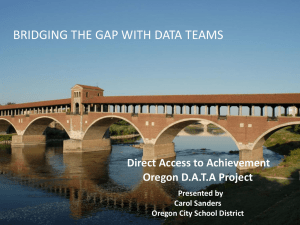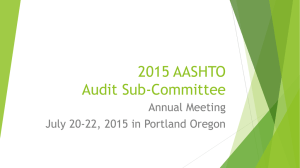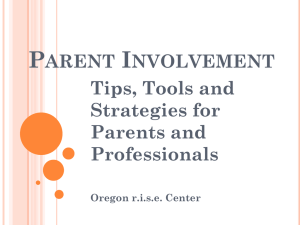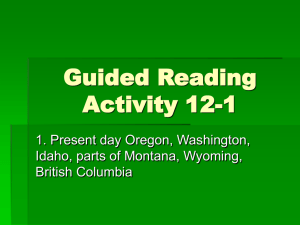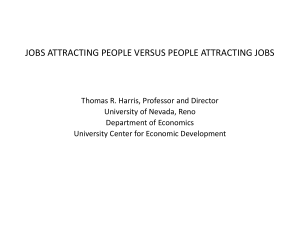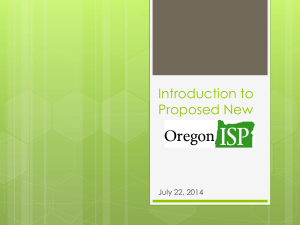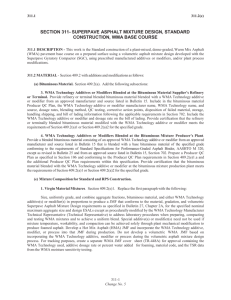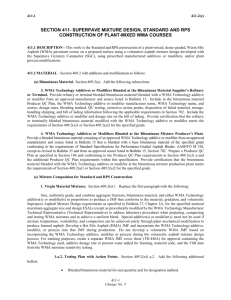Scott A. Freeburn, P.E. Environmental, Health, and Safety Manager
advertisement
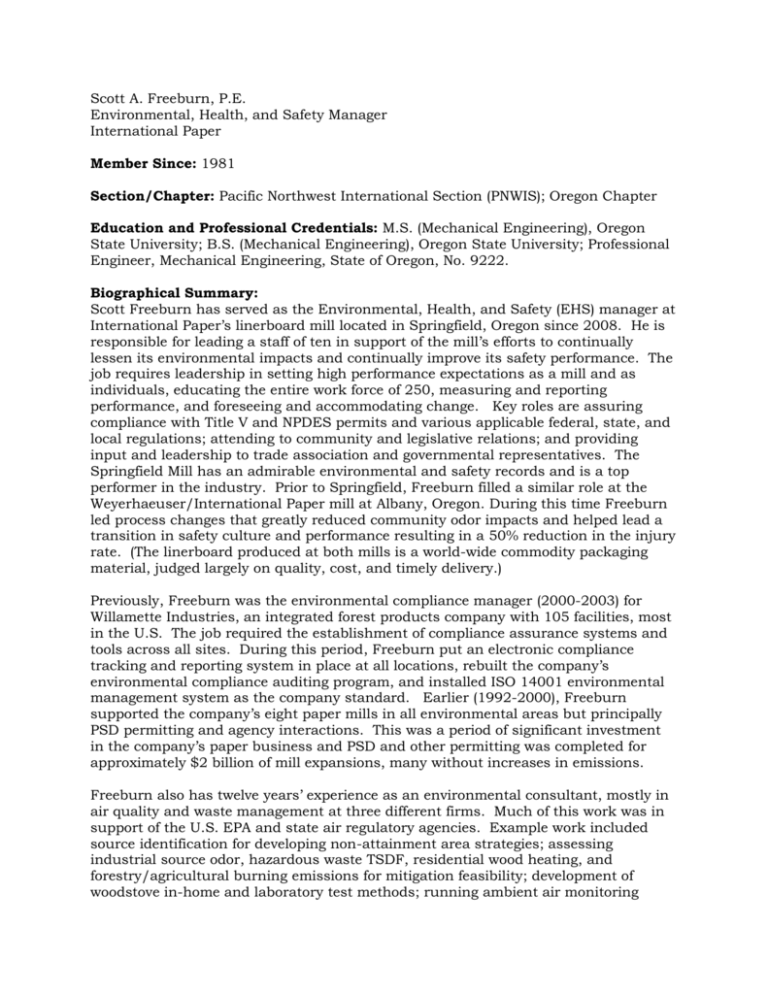
Scott A. Freeburn, P.E. Environmental, Health, and Safety Manager International Paper Member Since: 1981 Section/Chapter: Pacific Northwest International Section (PNWIS); Oregon Chapter Education and Professional Credentials: M.S. (Mechanical Engineering), Oregon State University; B.S. (Mechanical Engineering), Oregon State University; Professional Engineer, Mechanical Engineering, State of Oregon, No. 9222. Biographical Summary: Scott Freeburn has served as the Environmental, Health, and Safety (EHS) manager at International Paper’s linerboard mill located in Springfield, Oregon since 2008. He is responsible for leading a staff of ten in support of the mill’s efforts to continually lessen its environmental impacts and continually improve its safety performance. The job requires leadership in setting high performance expectations as a mill and as individuals, educating the entire work force of 250, measuring and reporting performance, and foreseeing and accommodating change. Key roles are assuring compliance with Title V and NPDES permits and various applicable federal, state, and local regulations; attending to community and legislative relations; and providing input and leadership to trade association and governmental representatives. The Springfield Mill has an admirable environmental and safety records and is a top performer in the industry. Prior to Springfield, Freeburn filled a similar role at the Weyerhaeuser/International Paper mill at Albany, Oregon. During this time Freeburn led process changes that greatly reduced community odor impacts and helped lead a transition in safety culture and performance resulting in a 50% reduction in the injury rate. (The linerboard produced at both mills is a world-wide commodity packaging material, judged largely on quality, cost, and timely delivery.) Previously, Freeburn was the environmental compliance manager (2000-2003) for Willamette Industries, an integrated forest products company with 105 facilities, most in the U.S. The job required the establishment of compliance assurance systems and tools across all sites. During this period, Freeburn put an electronic compliance tracking and reporting system in place at all locations, rebuilt the company’s environmental compliance auditing program, and installed ISO 14001 environmental management system as the company standard. Earlier (1992-2000), Freeburn supported the company’s eight paper mills in all environmental areas but principally PSD permitting and agency interactions. This was a period of significant investment in the company’s paper business and PSD and other permitting was completed for approximately $2 billion of mill expansions, many without increases in emissions. Freeburn also has twelve years’ experience as an environmental consultant, mostly in air quality and waste management at three different firms. Much of this work was in support of the U.S. EPA and state air regulatory agencies. Example work included source identification for developing non-attainment area strategies; assessing industrial source odor, hazardous waste TSDF, residential wood heating, and forestry/agricultural burning emissions for mitigation feasibility; development of woodstove in-home and laboratory test methods; running ambient air monitoring networks for compliance and research purposes; and developing and maintaining source inventories. Other work was related to air permitting or applied research for private clients. This work included PSD and other air permitting for new mining, industrial source, landfill, and incinerator developments. Freeburn also conducted noise assessments, air impact investigations, and various site remediation studies. During this period, Freeburn had various duties related to the work performed. In most cases he was the project manager with normal scope, budget, and schedule responsibilities attendant to that job. He also served as lead engineer, client liaison, and responsible company official depending on the project. Through periods of both high growth and stagnation, Freeburn commonly had company management and business development responsibilities for groups of five to twenty professional employees. For a six year period, as an employee of the Oregon Department of Environmental Quality, Freeburn regulated agricultural field burning in western Oregon. This was a high profile, politically sensitive position requiring significant skills in dealing with the public, the regulated farmers, and the state legislators. In was also technically demanding, requiring the development of accurate forecasting of suitable burning conditions, the perfecting of responsive, enforceable burning control systems, implementing the accommodating rules and permitting, and the management of research into a wide variety of less polluting post-harvest treatments. Freeburn received an Environmental Quality Commission commendation for exemplary service for this work. Freeburn is a professional mechanical engineer in the State of Oregon. He is a member and past-President of the Board of Trustees of the Northwest Pulp and Paper Association, a non-profit that performs research, litigation, and lobbying for regional pulp and paper mills. He is a member and past-President of the National Council for Air and Stream Improvement regional committee which directs forestry and other environmental research. He has also been active in statewide and local community business organizations and the Oregon State University alumni association. A&WMA Activities and Offices Held: A member of A&WMA since 1981, Freeburn was recognized as a Fellow member in 2008. His leadership roles include serving as: A member of the A&WMA Board of Directors (2003–2005) and Vice President and Chair of the Finance Committee (2005); A member of the A&WMA Fellows Admission Committee (2012–2015); Part of LHC, cochairing the Outreach Committee for the 2008 A&WMA Annual Conference & Exhibition in Portland; Executive Board Member of PNWIS (1990–1997) and President (1996); Registration Chair of the 1998 PNWIS Annual Conference in Portland; General Chair of the 2004 PNWIS Annual Conference in Portland; and previously, President and Executive Board Member of the Oregon Chapter. Freeburn was the recipient of the PNWIS Robert Stockman Award (1998). He conceptualized and initiated the PNWIS Environmental Challenge to encourage, fund, and reward greater student participation. (Through the combined efforts of many, dozens of students now participate each year in Environmental Challenges at the ACE, PNWIS annual meeting, and at other S&C meetings.) Goals/Visions for the Association: A vision for the Association, which battles financial challenges, is dominated by the need to answer the money questions of membership totals, fees, and how we spend our resources. Ultimately, these will be Board decisions. In the role of the Presidentelect, my feelings in the following key areas will weight my decisions. The Association continues to have a natural constituency of air and waste professionals for diverse reasons. For those whose day is heavily focused on air or waste issues, we are one of the best technical resources available. For the huge majority of the environmental community, our focus areas are only periodically or tangentially of interest; useful once in a while. We must stay loyal to our core constituency that has sustained our mission for more than a century but never ignore the part time user. Exigencies of business and government and generational shifts make both groups important to the Association’s future. Our raison d’etre is communication of what is learned. Our traditional methods meet the highest standards of practice for review and publication. We continue to support the research community in this regard. With effort, we have expanded our methods and topics we communicate over time. We should anticipate that the rate of needed change will only increase. As we upgrade and restructure these services, we should have as a principal goal bringing efficiencies to our management systems, especially the delivery of Headquarters support to the Sections and Chapters. I remain convinced that A&WMA can deliver a lot of value to young environmental professionals. Since our meetings focus on transmitting useful information and many have associated networking events, we really specialize in delivering knowledge and opportunity. I believe the challenge to recruitment is not the product but making the cold call that gets young professionals (YPs) in contact. YP recruitment is already an Association focus area. Much is being done. I fully support these efforts at every organizational level but it is particularly critical for every Section and Chapter to have sustained recruitment programs. S&Cs are more likely to have a lower cost of entry, more locally relevant programming, more responsiveness in program execution, and should be able to guarantee the YP meaningful contacts with local experienced professionals. These factors are vital to delivering value on first blush. Some one thing in the Association’s diverse catalog may keep a new member, but our skillful first contacts will be the key to the future of the Association. There has been a balance in functions and services between Headquarters and the Sections and Chapters that has allowed the Association to maintain a respected professional profile, delivering products of the highest quality while servicing a genuinely diverse membership. Change is not made lightly but we should not be afraid to adjust this balance to our betterment. The Board of Directors will ultimately decide how to apply the thumb to the scale. I would encourage us to search the broadest range of rebalancing as we seek the future we want.


